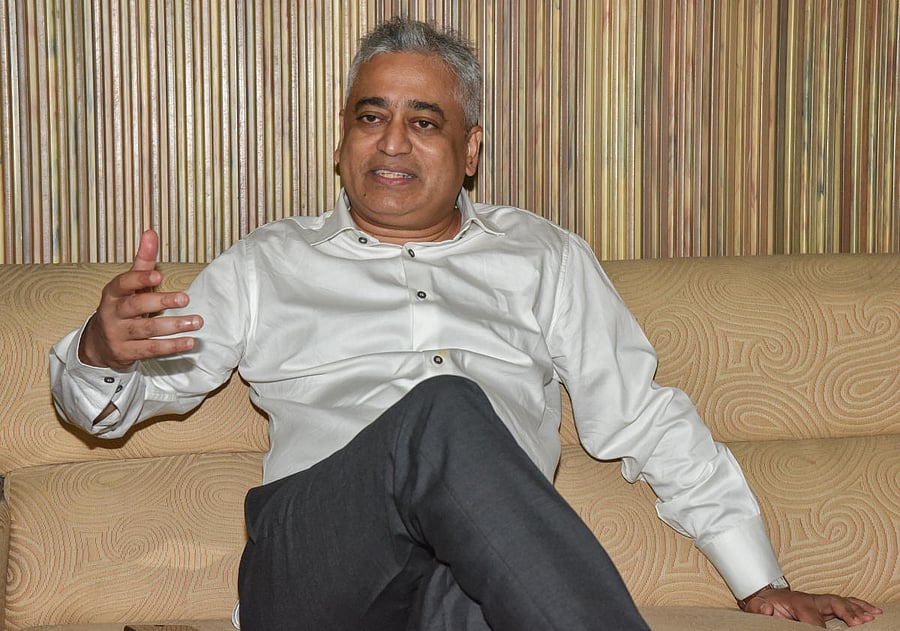
Veteran journalist Rajdeep Sardesai was in Bengaluru on Thursday to discuss his book ‘2019: How Modi Won India’. The discussion, at the Bangalore International Centre, was anchored by eminent historian Ramachandra Guha, author of highly acclaimed books on Gandhi and India. Introducing Sardesai, Guha said it was the first time their roles had been reversed: he was interviewing the journalist.
Sardesai described Prime Minister Modi as “ an excellent event organiser …. And in many ways made for the TV media age”.
When Guha spoke about parallels between Modi and Indira Gandhi, Sardesai said Modi’s journey was different and that he was never a “goongi gudiya” (a mute doll, as described by party elders). In his 40-year journey, Modi has been consistently moving forward, he said.
Sardesai underlined Modi’s doggedness and determination. “He has been able to overcome adversity and that has made him what he is today, “ he said.
On why the 2019 elections were Modi’s to win, Sardesai said apart from his image as a “strong man”, he was seen as someone who offered a vision and could deliver on promises,”
His explanation: “Modi is also a skilled orator whose oratory bordered on demagoguery and that also was a reason for his win. He knows what to say in Davos as well as in Davangere. He has harnessed the power of communication and that has played an important role in the 2019 elections.”
When Guha asked about the demonisation of Muslims, Sardesai said, “The Gujarat Model is being implemented on a national scale… The CAB (Citizenship Amendment Bill ) is an attempt to grab the Bengal election.”
The relationship between Narendra Modi and Amit Shah was also discussed. “Modi sees himself as a man of destiny while Amit Shah is more transactional and is an ideologue … Modi is more concerned about his legacy,” Sardesai observed.
While the government may have notched up successes at the domestic level, its are affecting foreign relations, Sardesai said. “The NRC - CAB has affected its relationship with Bangladesh, one of the few neighbours with whom India had a good relationship,” he said.
About the role of media in enabling the ruling party and the PM, Sardesai said, “There is a cult of personality around him for which the media is complicit. The media acts like a cheerleader instead of being a mirror to the policies of the government.”
He said ‘aspirational youth’ had played an important role in determining the outcome of the election. “They want a better life and that’s why they voted for Modi as he made them promises. They may look to another figure if these promises are not delivered.”
Sardesai also said he always enjoyed coming to Bengaluru, “ It is wonderful coming to Bengaluru, away from the cynical, coarse politics of Delhi, and being with real people,” he said.
